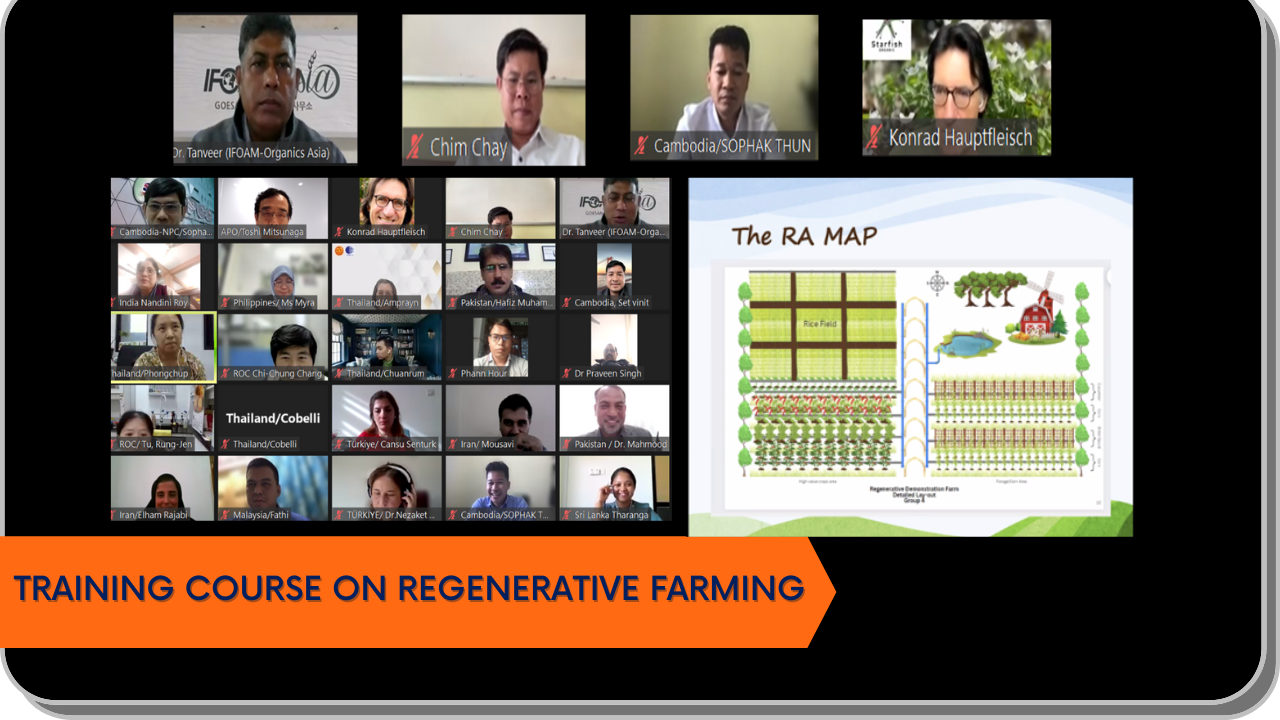
Select Page

Agriculture is a crucial sector within APO member economies to support growing populations and increasing food demand. However, the expansion of agricultural production through traditional farming practices has led to significant environmental issues, including soil degradation and the release of CO2, intensifying global warming. Regenerative farming is a promising solution, offering not just substantial reductions in greenhouse gas emissions but also the revitalization of soil health.
In recognition of its potential to foster sustainable agriculture, the National Productivity Centre of Cambodia (NPCC) in collaboration with the APO Secretariat organized an online training course on Regenerative Farming, 23–26 January. There was widespread interest in learning about sustainable agricultural practices, with 48 participants from 13 members attending the course.
Designed to introduce affordable, sustainable technologies, the course paved the way for a more resilient, environmentally aware agricultural future. Four resource persons comprising one from Bangladesh, two from Cambodia, and one from Germany delved into various aspects of regenerative farming, including its principles, methodologies, tools, and impacts, and presented case studies. Participants acquired knowledge and developed action plans to apply sustainable practices within their contexts. The course focused on the importance of soil health restoration, conservation agriculture, sustainable organic farming, and the principles of the circular economy in agriculture.
The APO emphasizes the need for participants to apply their knowledge in developing effective regenerative farming strategies, addressing the dual challenges of food security and climate change. This initiative to promote sustainable agricultural practices and environmental stewardship reflects the APO’s commitment to enhancing productivity and sustainability through capacity building.